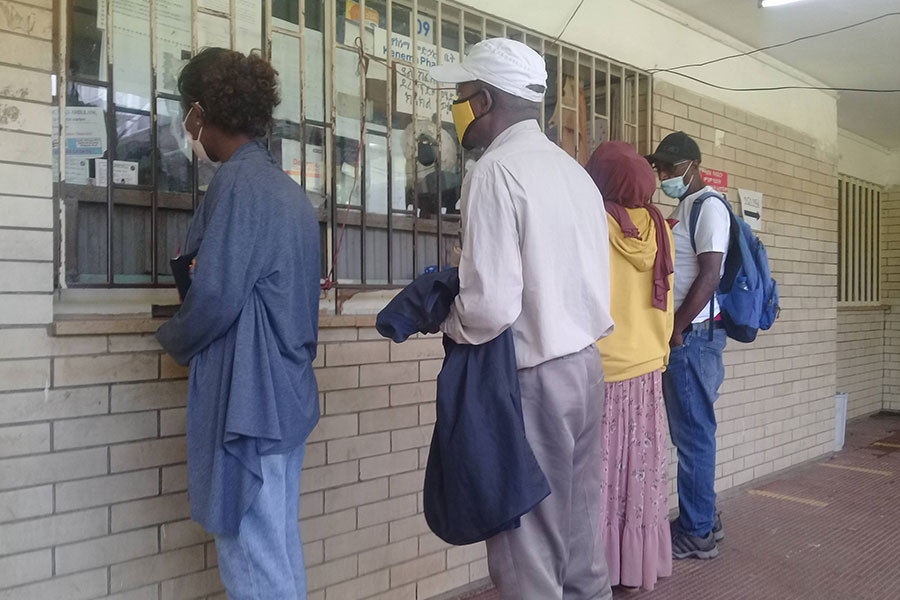
Fortune News | Jul 23,2022
Mar 23 , 2019
By
Rarely is a cannabis story a source of discussion on the Ethiopian-populated part of social media. It is the sort of substance that inspires secrecies more than level-headed discussion - a matter that is not allowed to bubble above the surface.
A firm from Canada, only the second country to legalise cannabis, did not think this was the case. A meeting was held between community members of a weredain West Gojam Zone, Amhara Regional State, and representatives of the company over a planned cannabis farm for medicinal use in an export market.
This was one foreign direct investment (FDI) initiative many did not appreciate. This being the age of media-savvy government officials, the public indignation was quickly picked up and the whole idea unequivocally shot down by a minister and a commissioner.
Abebe Abebayehu, head of the Ethiopian Investment Commission (EIC), said that a licence for such an investment will not be issued.
“The Ministry of Health’s position regarding the growing of cannabis for medical purposes in Ethiopia has neither been recognised or given regulatory approval. Previous requests for such investments have been and will continue to be denied,” Amir Aman (MD) said on the matter.
In a country where khat, alcohol and cigarettes are legal though, are the authorities really doing us a service by completely banning it? Is this substance, much better known by its nickname, Marijuana, really more harmful than other legal substances?
As far as science is concerned, no. Cannabis is the least harmful drug of the recreational substances most widely used today, according to Scientific Reports, an open source science journal. People are less likely to die of this substance than - forget hardcore drugs such as heroin or cocaine - alcohol or nicotine or get addicted to.
There has never been a documented case of any human being in the history of the use of cannabis overdosing. Surprisingly, or perhaps not, alcohol and cigarette would be banned and cannabis legalised had it only been pure scientific consensus that determines public health policies, according to Mark Kleiman, professor of drug policy and criminal justice at New York University.
This does not mean that cannabis is harmless, and neither should it be encouraged merely because it is less harmful than other substances. It causes dizziness, hallucinations, disorientation and even vomiting. It is definitely not recommended to use the substance while driving, nor is inhaling it great for the lungs.
“Cannabis impairs cognitive development (capabilities of learning), including associative processes; free recall of previously learned items is often impaired when cannabis is used both during learning and recall periods,” the World Health Organisation (WHO) says.
The negative side effects of cannabis use cannot be denied. But neither can it be claimed it is a hard drug as far as scientific data is concerned. Actually, there is a growing medical consensus that the drug has medicinal purposes.
“Therapeutic uses of cannabinoids are being demonstrated by controlled studies, including treatment of asthma and glaucoma, as an antidepressant, appetite stimulant, anticonvulsant and anti-spasmodic, research in this area should continue,” states WHO.
It has been used to help stimulate appetite in HIV patients and relieve the adverse effects of chemotherapy such as nausea. It has as well been used to treat depression and epilepsy, though further research in these areas is needed.
Why is it then that cannabis, which has fewer health risks than almost every other substance, as well as proven uses for medicinal purposes in doses recommended by health professionals, far less acceptable than the likes of alcohol, khatand cigarettes in Ethiopia?
Perhaps it has to do with the fact that mainstream use is a relatively recent phenomenon. It also does not have respectable brand recognition. We have seen great political leaders, doctors and lawyers - the culturally respectable lot - take a swig of whiskey and smoke like a chimney. Cannabis mostly finds screen time in loud and obnoxious rap and reggae music videos.
Science though should carry more currency than public image in a civilised and modern world. Substances likely to exist in the underground but that society does not want to encourage - and we should discourage substance abuse of any kind - should be carefully regulated. This should be especially true for drugs that are increasingly proving themselves crucial to curing illnesses. To shun such scientific evidence would be doing a disservice to our fellow citizens.
PUBLISHED ON
Mar 23,2019 [ VOL
19 , NO
986]

Fortune News | Jul 23,2022

Fortune News | Sep 18,2022

Fortune News | Oct 30,2022

Covid-19 | Apr 17,2020

Radar | Jun 22,2024

Agenda | Mar 26,2022

Fortune News | Apr 27,2025

Verbatim | May 24,2025

Fortune News | Oct 31,2020

Viewpoints | Aug 10,2024

My Opinion | 131974 Views | Aug 14,2021

My Opinion | 128363 Views | Aug 21,2021

My Opinion | 126301 Views | Sep 10,2021

My Opinion | 123917 Views | Aug 07,2021

Dec 22 , 2024 . By TIZITA SHEWAFERAW
Charged with transforming colossal state-owned enterprises into modern and competitiv...

Aug 18 , 2024 . By AKSAH ITALO
Although predictable Yonas Zerihun's job in the ride-hailing service is not immune to...

Jul 28 , 2024 . By TIZITA SHEWAFERAW
Unhabitual, perhaps too many, Samuel Gebreyohannes, 38, used to occasionally enjoy a couple of beers at breakfast. However, he recently swit...

Jul 13 , 2024 . By AKSAH ITALO
Investors who rely on tractors, trucks, and field vehicles for commuting, transporting commodities, and f...

Jul 5 , 2025
Six years ago, Ethiopia was the darling of international liberal commentators. A year...

Jun 28 , 2025
Meseret Damtie, the assertive auditor general, has never been shy about naming names...

Jun 21 , 2025
A well-worn adage says, “Budget is not destiny, but it is direction.” Examining t...

Jun 14 , 2025
Yet again, the Horn of Africa is bracing for trouble. A region already frayed by wars...

Jul 6 , 2025 . By BEZAWIT HULUAGER
The federal legislature gave Prime Minister Abiy Ahmed (PhD) what he wanted: a 1.9 tr...

Jul 6 , 2025 . By YITBAREK GETACHEW
In a city rising skyward at breakneck speed, a reckoning has arrived. Authorities in...

Jul 6 , 2025 . By NAHOM AYELE
A landmark directive from the Ministry of Finance signals a paradigm shift in the cou...

Jul 6 , 2025 . By NAHOM AYELE
Awash Bank has announced plans to establish a dedicated investment banking subsidiary...